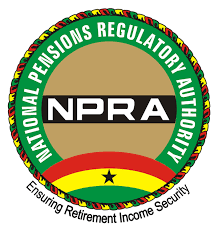Government’s decision to exempt the security agencies from the unification of pension schemes could affect the sustainability of the three tier pension system, the sector’s regulator, the National Pensions Regulatory Authority (NPRA), has lamented.
Unification seeks to bring all parallel pension schemes under the three-tier system by 2021. But the exemption of the security services means they will remain on their existing pension programme, CAP-30, a non-contributory scheme set up in the 1950s.
The regulator, in a statement, told the B&FT that any scheme which is non-contributory is not sustainable, echoing what labour and pension experts have been advocating for some time now.
“The CAP 30 scheme was one of the main reasons why public workers agitated in 2004 where they compared the CAP 30 scheme to the SSNIT scheme and it led to the introduction of the all inclusive three tier pension scheme. Exempting the security services from the three tier pension scheme defeats the purpose of the Act 766,” the Authority said.
Intrinsically, the directive implies that while all other public sector workers contribute to retirement income, that of the Ghana Police Service, Fire Services and Ghana Armed Forces and other security and intelligence agencies do not. Rather, their pension contributions are drawn from the Consolidated Fund.
This is in spite the fact that the NPRA and industry experts have consistently kicked against CAP 30 because they believe that it puts undue pressure on the consolidated fund and as such is not sustainable because beneficiaries do not contribute towards their pension.
Many industry watchers, including labour experts within Trades Union Congress (TUC) who spoke on anonymity hold the view that the continuous existence of CAP 30 does not promote equity and as such, puts an unwarranted strain on government’s limited resources.
The directive by cabinet is also contrary to the National Pensions Act (766) of 2008 which requires that all duplicate pension schemes are unified and brought under the new three tier system. Despite the existence of the law since 2010, the provision relating to unification of all parallel schemes, have not been implemented due to lack of political will.
Background
Minister of Information, Kojo Oppong Nkrumah, in August this year announced that Cabinet had given approval for the security agencies to be exempted from the unification of pension schemes. He said the decision to exclude the security services from the unification process is because of the peculiar nature of their task and risks they face in their line of duty.
“The Cabinet considered the recommendations of the report seeking the following actions for the completion of the unification process. One, the exclusion of the security services, that is, the police service, the immigration service, the National Fire Service, the Prisons Service, as well as other security and intelligence agencies. Two, the amendment of Act 766 to exclude the security services from the unification of pensions,” he said.
In granting the approval for the security services to remain on their old pensions, he said, cabinet had directed the Minister of Employment and Labour Relations to commence processes to have the law amended.
“The security services will not be subject to the unification of pensions and will remain on their old pension programmes. The security services will not be subjected to or included in the programme to unify pensions. They will instead remain on their already existent pension programmes, such as the Cap-30 and the other pension programmes that exist,” he added.










